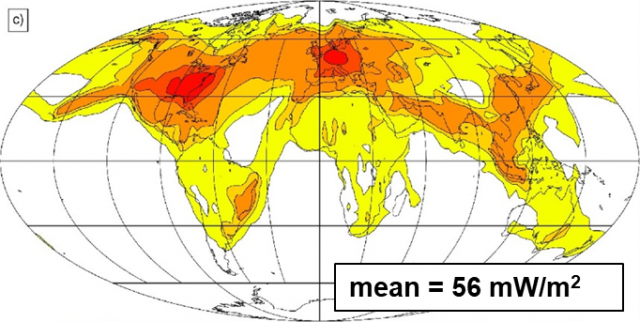Events 2021
04
Feb
2021
18:00
RAeS Lecture in cooperation with DGLR, HAW Hamburg, VDI & ZAL
 Dr. Markovic will introduce the current best picture we have of the history and constituents of our universe. She will describe the so-called Lambda-Cold-Dark-Matter cosmological model, which is supported most by evidence. She will also give an overview of some of the early ground-based observations as well as the space missions by ESA and NASA, which provided the evidence that speaks for this model. Finally, she will describe how we are submitting this model to more and more stringent tests using space telescopes like Euclid and Nancy Grace Roman.
Dr. Markovic will introduce the current best picture we have of the history and constituents of our universe. She will describe the so-called Lambda-Cold-Dark-Matter cosmological model, which is supported most by evidence. She will also give an overview of some of the early ground-based observations as well as the space missions by ESA and NASA, which provided the evidence that speaks for this model. Finally, she will describe how we are submitting this model to more and more stringent tests using space telescopes like Euclid and Nancy Grace Roman.
Dr. Katarina (Dida) Markovic is a research scientist at NASA’s Jet Propulsion Laboratory in Pasadena, California. Her research in cosmology is to study apparent distortions in our maps of positions of distant galaxies, which contain information about the unknown components of the universe: dark energy and dark matter. She works on the preparations for the Euclid and the Nancy Grace Roman Space Telescopes, which are to be launched in the 2020s. Before JPL, she worked as a postdoctoral researcher at the Institute of Cosmology and Gravitation in the United Kingdom, after finishing her PhD in astrophysics at the LMU in Munich, Germany.
![]() poster_2021_02_04_Cosmology.pdf (553 KB)
poster_2021_02_04_Cosmology.pdf (553 KB)
Download Lecture Notes
Time:
18:00 Uhr

08
Apr
2021
18:00
RAeS Hamburg lecture in cooperation with DGLR, HAW Hamburg, VDI & ZAL
Note that the lecture starts at 18.00 CEST!
Focussing on passenger satisfaction and remaining responsive to shifts in passenger preferences and requirements is key to the design of future cabins. Awareness of the environmental impacts of aviation and the need to mitigate these effects through enhancements to operations and aircraft design has arguably never been greater. The nature of these challenges has been made even more complex by the ongoing disruption caused by COVID-19.
New technologies are likely to play a key role in helping overcome these barriers, and we are already seeing exciting innovations in areas including in-flight passenger wellbeing, sustainability and personalisation.
This presentation examines the role of emerging technology in the future aircraft cabin, examining onboard needs and requirements from a passenger’s perspective to better understand the capabilities and potential applications of various current and future aircraft cabin technologies. Cranfield University is inviting debate on the pros and cons of the resulting intelligent cabin proposals.
Dr. Thomas Budd is a Lecturer in Airport Planning and Management in the Centre for Air Transport Management at Cranfield University, UK, and Course Director for the MSc in Airport Planning and Management. His research and teaching activities focus on issues of air transport environmental sustainability and resilience planning, and how disruptive technologies can be leveraged to facilitate safe, seamless and sustainable journeys.
Dr. Craig Lawson is a Senior Lecturer in Airframe Systems Design, and Aircraft Performance. He also supervises design and research projects in the field of Aircraft Systems at Masters and PhD level. Craig manages research in these fields including for EU funded Clean Sky and Future Cabin for the Asian Market projects. He has published more than 60 research papers.
![]() poster_2021_04_06_FutureCabins.pdf (314 KB)
poster_2021_04_06_FutureCabins.pdf (314 KB)
Download Lecture notes
Time:
18:00 Uhr

06
May
2021
18:00
RAeS lecture in cooperation with DGLR, HAW Hamburg, VDI & ZAL
Greening civil aviation is key to our global future. It is imperative to succeed without the vast economic and social damage that would follow constraining aircraft demand and operations. So radical aircraft propulsion technologies must be developed urgently. Most likely to succeed in this grand challenge (promising full decarbonisation) are hydrogen (H2) and electrification. H2 is an inevitable solution for a fully sustainable aviation future, via hybrid/fuel cell technologies for short to medium range and H2 combustion in gas turbines for longer missions. This presentation will provide an overview of the ongoing EU H2020 “ENABLing CryogEnic Hydrogen-Based CO2-free Air Transport” (ENABLEH2) project being coordinated by Cranfield University. The case for LH2 for civil aviation will be discussed followed by the strategic importance and overall scope of ENABLEH2. A summary of the key achievements to date will presented for the ENABLEH2 research on:
- Ultra-low NOx hydrogen micromix combustion
- Fuel system heat management – to exploit the formidable heat sink potential of LH2
- Safety
- LH2 Aircraft “Technology Evaluation”
The presentation will conclude with an overview of twelve key research technology strands (identified as part of a preliminary roadmapping exercise in ENABLEH2) that are necessary for accelerating the entry-into-service of LH2 aircraft to realise the environmental benefits as soon as possible.
Biography
In 2004, Dr Sethi received an MSc Thermal Power degree from Cranfield University where he was also awarded the "British Aerospace Companies" Prize. Dr Sethi completed his PhD in the Department of Power and Propulsion at Cranfield University in 2008. Upon completion of his PhD, Dr Sethi joined the School of Engineering as a Research Fellow and was promoted to Lecturer in 2012.
In 2019 he became Deputy Director of Research, School of Aerospace, Transport & Manufacturing and in 2020 he also became Associate Professor in Gas Turbine Combustion and Environmental Impact.
He is currently Overall Project Coordinator and CU Principal Investigator for the ~€4M EU H2020 ““ENABLing CryogEnic Hydrogen-Based CO2-free Air Transport” ENABLEH2 project (20+ key EU civil aviation stakeholders – partners and Industry advisory board members)
Details of the Zoom link are given in the poster
![]() poster_2021_05_06_Hydrogen.pdf (282 KB)
poster_2021_05_06_Hydrogen.pdf (282 KB)
Presentation slides
![]() text_2021_05_06_Hydrogen.pdf (4,65 MB)
text_2021_05_06_Hydrogen.pdf (4,65 MB)
Time:
18:00 Uhr

18
May
2021
15:00
Time:
15:00 - 17:30 Uhr

20
May
2021
18:00
HAW lecture in cooperation with RAeS Hamburg, DGLR, VDI & ZAL
A seaplane gives the ultimate freedom of flight with theoretically endless take-off and alighting possibilities
along the coast, on lakes and rivers – and not to forget on the open seas. The design of seaplanes is based on
the knowledge of aircraft design and speedboat design. The craft must meet buoyancy and lift requirements.
Hydrostatic and -dynamic stability has to be matched with the longitudinal and lateral static and dynamic
stability in the air. The structure has to withstand water and air loads. Crucial are hydrodynamic resistance at
take-off as well as the lift-to-drag ratio in flight and particularly the water loads in defined sea states.
Sea plane design has a glorious past, but much of the knowledge is buried in dusty archives. It is even worse if
knowledge is lost forever and needs to be reinvented.
Details of the Zoom link are given in the poster
![]() poster_2021_05_20_SeaplaneDesign.pdf (319 KB)
poster_2021_05_20_SeaplaneDesign.pdf (319 KB)
Link to lecture presentation
For more info see Homepage: Prof. Wilczek
Time:
18:00 Uhr

24
June
2021
18:00
HAW lecture in cooperation with RAeS, DGLR, VDI & ZAL
Lecture in English
We are hopefully coming to the end of the coronavirus pandemic and are approaching a summer with a holiday perspective including air travel. As such, it is time to present a wrap-up of the discussion from the last 15 month. The lecture starts with a brief explanation of passenger aircraft air conditioning systems. This is followed by an introduction to aircraft cabin ventilation theory. Seven legends are famous; three of them have been used extensively by the aviation industry. With an aeronautical sciences perspective, we try to find out how much truth is in these seven legends. More details on the second page of this PDF poster.
![]() poster_2021_06_24_CabinVentilation.pdf (1,39 MB)
poster_2021_06_24_CabinVentilation.pdf (1,39 MB)
Time:
18:00 Uhr

28
Sep
2021
17:00
CEST
The RAeS Hamburg Branch would like to recognise the support of the German Aerospace Industries Association (BDLI) in organising this event.
This event will be in English
Panellists:
Sustainability is a concept which is increasing more and more in importance in the public awareness. Extreme weather events seem to be becoming more frequent and global warming and climate change are of increasing concern. The aviation industry as a producer of greenhouse gases is therefore committed to address these issues and reduce its impact through a variety of measures.
This will be a panel discussion between four experts in their field. Each panellist will give a 10-15 minute presentation on their topic. It will be followed by a moderated discussion and finally by a Q&A session with the audience.
(If you wish to attend, please register online or send a mail to Susanne Altstaedt, susanne.altstaedt@airbus.com)
Download poster
Time:
17:00 - 19:30 Uhr CEST

21
Oct
2021
18:00
CET
DGLR lecture in cooperation with RAeS Hamburg, HAW Hamburg, VDI and ZAL
Lecture in German
Die Europäer bauten zu Beginn des neuen Millenniums das größte Verkehrsflugzeug der Welt für bis zu 853 Fluggäste. Das erste Flugzeug der Welt mit zwei Decks über die volle Rumpflänge. Eine Herausforderung für die Konstrukteure, aber auch für Betreiber und Flughäfen.
Passagiere liebten die A380 von Anfang an, doch wirtschaftlich erwies sie sich als wenig erfolgreich. Die Produktion der A380 wurde bereits 2021 wieder eingestellt. Ein technischer Rückblick auf eines der wichtigsten Projekte der zivilen Luftfahrtgeschichte.
Der Vortrag wird gehalten aus Anlass des neuen Buches von Andreas Spaeth, das Anfang 2021 herausgegeben wurde. Im Rahmen des Vortrages werden Bilder aus dem Buch gezeigt.
![]() poster_2021_10_21_A380-(1).pdf (327 KB)
poster_2021_10_21_A380-(1).pdf (327 KB)
Time:
18:00 Uhr CET

18
Nov
2021
18:00
HAW lecture in cooperation with RAeS, DGLR, VDI & ZAL
Im Dezember wird in Hamburg die letzte Auslieferung eines Airbus A380 stattfinden. Aus diesem Anlass wollen wir noch einmal zurück schauen: Die Life Cycle Initiative im Umweltprogramm der Vereinten Nationen (UNEP) hat einen Leitfaden verfasst, der erklärt, wie man ein "Social Life Cycle Assessment" (S-LCA) von Produkten macht (siehe hier).
Im Rahmen einer Projektarbeit an der HAW Hamburg hat Frau Loth das Flugzeugprojekt Airbus A380 im Sinne einer S-LCA betrachtet. Welche Bedeutung hatte das Airbus A380 Programm für Europe, für Deutschland, für Hamburg, für den Flugzeughersteller Airbus, für Angestellte, Anwohner und für die Umwelt?
Um Antworten zu finden hat Frau Loth bei ihren Recherchen auch eine Reihe von Personen in Interviews befragt. Nicht zuletzt geht es im Vortrag um die Verlängerung der Landebahn am Airbus Standort Hamburg-Finkenwerder, hinein in das Gebiet des historischen Dorfes Neuenfelde – eine dramatische Auseinandersetzung.
![]() poster_2021_11_18_A380-Social-LifeCycleAssessment.pdf (448 KB)
poster_2021_11_18_A380-Social-LifeCycleAssessment.pdf (448 KB)
Time:
18:00 Uhr

02
Dec
2021
18:00
RAeS lecture in cooperation with DGLR, HAW Hamburg, VDI & ZAL
Lecture in English
 Today, air traffic is estimated to contribute between 3.5% and 5% to the anthropogenic forcing of climate change. Contrail cirrus, the cirrus clouds that form within the aircraft plume, account for the largest share of the aviation related forcing, larger than the forcing from aviation CO2 emissions.
Today, air traffic is estimated to contribute between 3.5% and 5% to the anthropogenic forcing of climate change. Contrail cirrus, the cirrus clouds that form within the aircraft plume, account for the largest share of the aviation related forcing, larger than the forcing from aviation CO2 emissions.
Contrails form when the aircraft exhaust mixes with environmental air, and during this mixing the plume relative humidity increases so much that water saturation is exceeded. Contrail formation increases cirrus cloudiness and modifies the radiation budget of the earth. This change in the radiation budget can be estimated using climate models that include a representation of contrail cirrus processes. The impact of contrail cirrus on radiation is dependent on contrail cirrus optical properties and their life time or coverage. Properties and life times are controlled by microphysical processes such as ice formation, i.e. processes on the scale of a single ice crystal. Simulations can be compared to in-situ or remote sensing measurements and the sensitivity of simulated contrail cirrus properties and radiative forcing to emissions can be explored.
As clouds constitute the largest uncertainty in estimating overall anthropogenic climate change, the cloud processes associated with aviation, contrail cirrus and indirect aerosol effects, constitute the largest uncertainties from all aviation related climate change components.
Biography
After receiving her doctorate in Physics in 1997 from the Ludwig-Maximilians-University in Munich, Ulrike Burkhardt moved first to the University of Reading (UK) and in 2003 to the Institute of Atmospheric Physics of the German Aerospace Centre (DLR) in Oberpfaffenhofen as a research fellow. Since 2006 her research focuses on cirrus clouds, natural cirrus and contrail cirrus, and their representation within climate models or higher resolving models. She studies the climate impact of contrail cirrus and the impact of different mitigation options.
Time:
18:00 Uhr

09
Dec
2021
18:00
DGLR lecture in cooperation with RAeS Hamburg, HAW Hamburg, VDI and ZAL
Open Science, also der offene Zugang zu wissenschaftlichen Ergebnissen, ist eine politische Priorität der EU, die im aktuell anlaufenden Rahmenprogramm Horizon Europe umgesetzt werden soll. Die Erwartungen sind, dass Forschung damit dynamischer, transparenter und effizienter wird. Dies soll in allen Forschungsbereichen realisiert werden.
Open Science wird somit auch in der gemeinsamen europäischen Luftfahrtforschung ihren Einzug halten - eine der wichtigsten Quellen für Forschung und Innovation in diesem prestigeträchtigen und wirtschaftlich bedeutenden, international hart umkämpften Industriesektor. Es stellt sich die Frage: Ist diese Idee genial, da sie der Luftfahrt neuen Schwung, neue Technologien und neue Geschäftsmöglichkeiten bringen wird? Oder stellt es im Gegenteil ein geradezu wahnsinniges Unterfangen dar, das den technologischen Vorsprung und damit die ausgezeichnete, hart erkämpfte Position der europäischen Luftfahrtindustrie auf dem Weltmarkt gefährden wird?
Martin Spieck ist seit 25 Jahren in der Luftfahrtforschung tätig. Der Vortrag stützt sich auf Ergebnisse aus dem EU-Projekt OSCAR, in dem Vor- und Nachteile von Open Science für die Luftfahrtforschung untersucht wurden.
![]() poster_2021_12_09_OpenScience.pdf (364 KB)
poster_2021_12_09_OpenScience.pdf (364 KB)
Time:
18:00 Uhr


